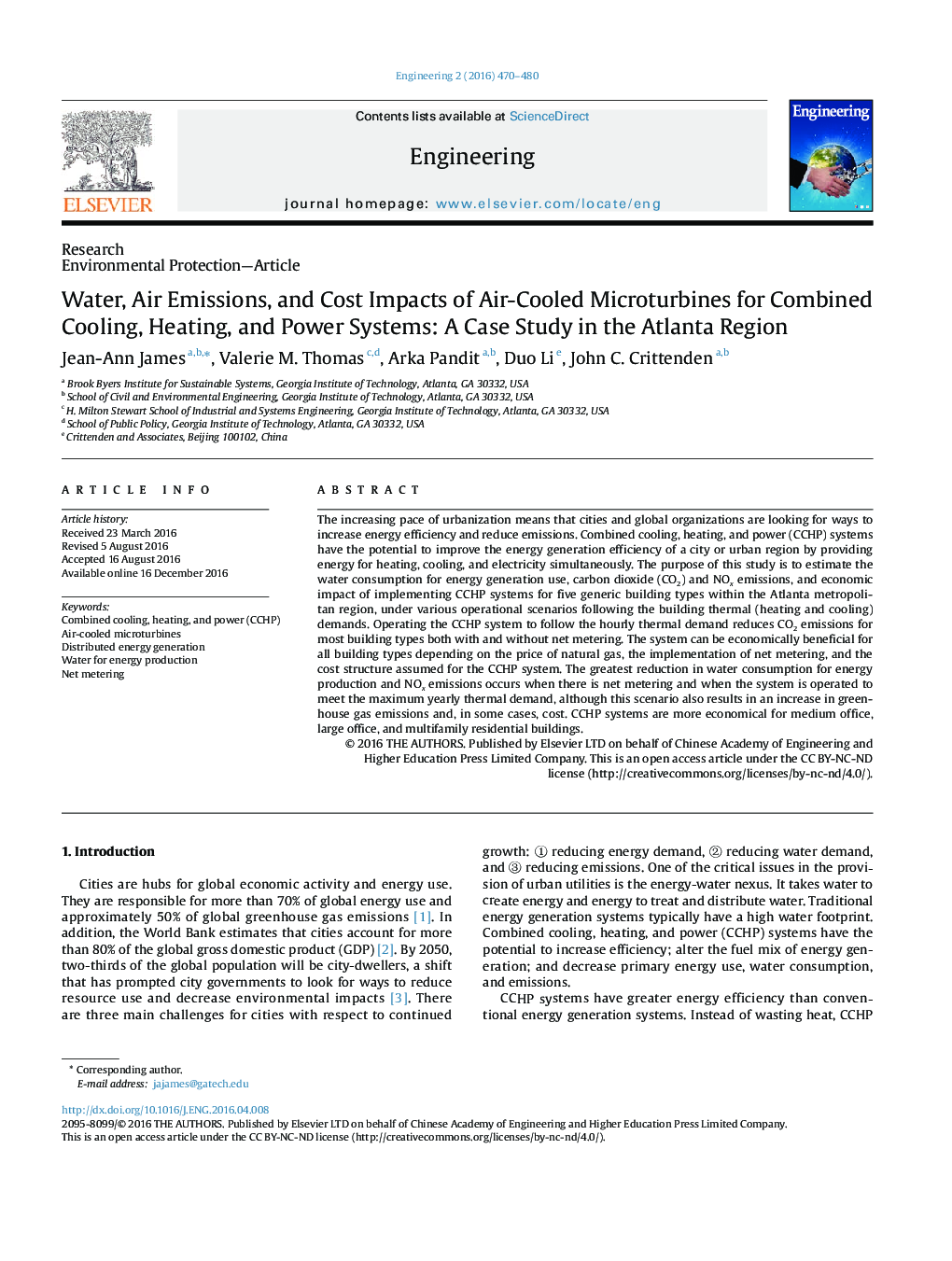| Article ID | Journal | Published Year | Pages | File Type |
|---|---|---|---|---|
| 4959265 | Engineering | 2016 | 11 Pages |
The increasing pace of urbanization means that cities and global organizations are looking for ways to increase energy efficiency and reduce emissions. Combined cooling, heating, and power (CCHP) systems have the potential to improve the energy generation efficiency of a city or urban region by providing energy for heating, cooling, and electricity simultaneously. The purpose of this study is to estimate the water consumption for energy generation use, carbon dioxide (CO2) and NOx emissions, and economic impact of implementing CCHP systems for five generic building types within the Atlanta metropolitan region, under various operational scenarios following the building thermal (heating and cooling) demands. Operating the CCHP system to follow the hourly thermal demand reduces CO2 emissions for most building types both with and without net metering. The system can be economically beneficial for all building types depending on the price of natural gas, the implementation of net metering, and the cost structure assumed for the CCHP system. The greatest reduction in water consumption for energy production and NOx emissions occurs when there is net metering and when the system is operated to meet the maximum yearly thermal demand, although this scenario also results in an increase in greenhouse gas emissions and, in some cases, cost. CCHP systems are more economical for medium office, large office, and multifamily residential buildings.
